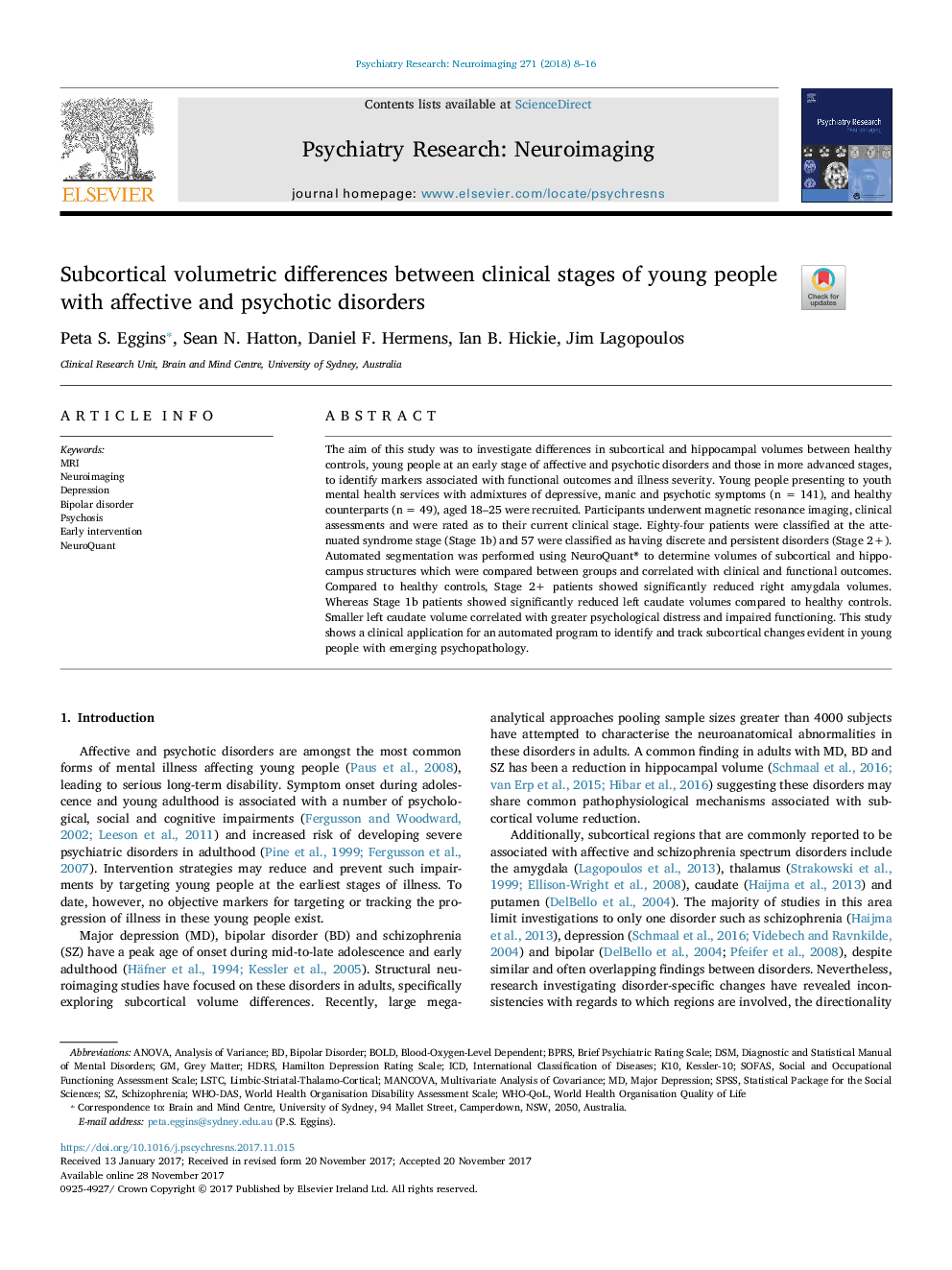ترجمه فارسی عنوان مقاله
اختلاف حجمی زیر فرعی بین مراحل بالینی جوانان با اختلالات عاطفی و روانی
عنوان انگلیسی
Subcortical volumetric differences between clinical stages of young people with affective and psychotic disorders
| کد مقاله | سال انتشار | تعداد صفحات مقاله انگلیسی |
|---|---|---|
| 126999 | 2018 | 9 صفحه PDF |
منبع

Publisher : Elsevier - Science Direct (الزویر - ساینس دایرکت)
Journal : Psychiatry Research: Neuroimaging, Volume 271, 30 January 2018, Pages 8-16

